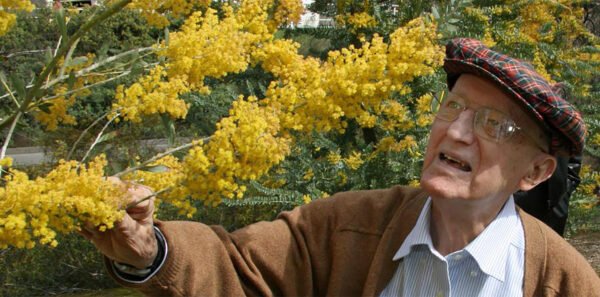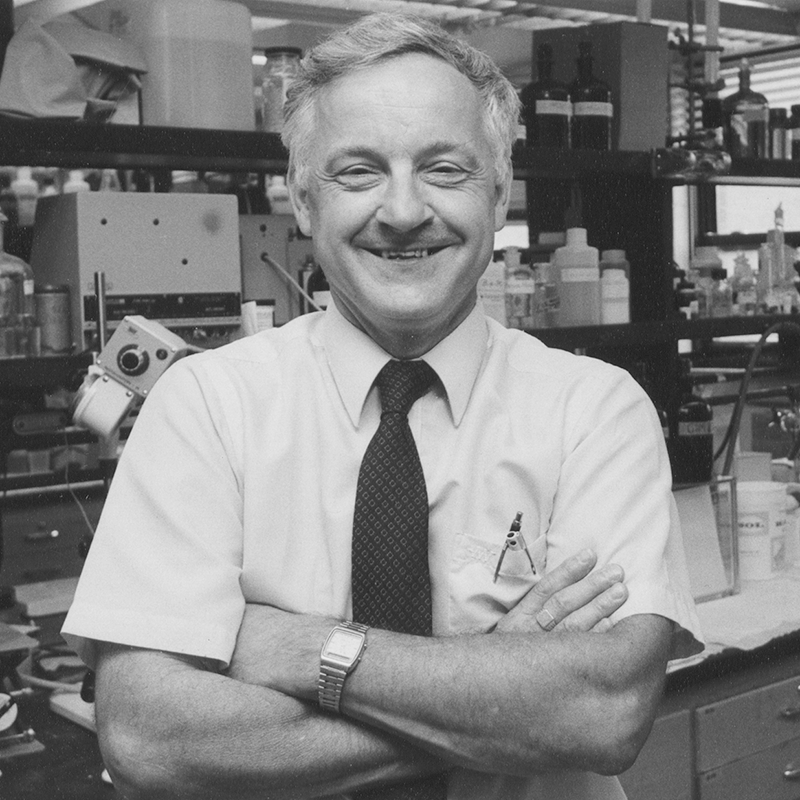Games memorialize Conn; remembering Kurt Ebner
Biochemistry games memorialize Conn
A competition between students at the University of California, Davis and at University College Dublin, Ireland, is being launched in memory of plant biochemist Eric Conn, a UC Davis professor of molecular and cellular biology and a member of the American Society for Biochemistry and Molecular Biology from 1952 until his death in 2017.

Sixty UC Davis undergraduates participated in the preliminary round called the Eric Conn Biochemistry Quizzes, held on Zoom. Between 10 and 15 of them will be selected to compete in the finals, depending on responses from UC Dublin.
The first-round Conn Quizzes included questions about fundamental biochemistry, and the final games will focus on protein structures, including two proteins related to the SARS-CoV-2 virus that causes COVID-19, according to organizer Walter Leal, a UC Davis distinguished professor.
Eric Conn served on the UC Davis faculty for 43 years and was world-renowned for his contributions to the understanding of plant metabolism. He organized the university’s introductory course in biochemistry in 1959 and taught it until he retired in 1993.
A member of the National Academy of Sciences, Conn received the UC Davis Academic Senate’s highest honor, the Faculty Research Lecturer Award, in 1977, and was the third recipient of the UC Davis Prize for Teaching and Scholarly Achievement. “He strongly believed that a university professor should excel in both research and teaching,” Leal told the Davis Enterprise.
UC Davis and UC Dublin are both global research universities, with 39,000 and 33,000 students, respectively.
In memoriam: Kurt Ebner
Kurt Ebner, who chaired the biochemistry and molecular biology department at the University of Kansas Medical Center for two decades, died Jan. 29 in Overland Park, Kansas. He was 89.

Born March 30, 1931, Ebner grew up in Canada and received bachelor’s and master’s degrees from the University of British Columbia. He earned a Ph.D. from the University of Illinois in 1960, working in Bruce Linder Larson’s lab. He studied at the National Institute for Research in Dairying in England with Herbert Gutfreund on a National Research Council postdoctoral fellowship and was then a postdoc at the University of Minnesota with Paul Boyer, who shared the 1997 Nobel Prize in chemistry.
Ebner joined the Oklahoma State University faculty in 1962 as an assistant professor, becoming a professor in 1969 and regent professor in 1971. He then joined the faculty of the University of Kansas Medical Center, where from 1974 to 1994 he chaired the biochemistry and molecular biology department He retired and was named professor emeritus in 1998.
Ebner’s research focused on enzymology and the structure-function of the hormone prolactin. He received the National Institute of Health Career Development Award in 1963 and the Borden Award from the American Chemical Society in 1969. He was a diplomat of the National Board of Medical Examiners and represented biochemistry chairs on the Council of Academic Societies, American Association of Medical Colleges. In 2011, former students and colleagues formed the Kurt E. Ebner Discovery Lectureship at the University of Kansas Medical Center in his honor.
In his youth, Ebner played amateur baseball and captained a volleyball team that won the British Columbia high school championship. After retirement, he played golf in senior leagues. He and his wife traveled extensively and enjoyed camping in the mountains. He was deemed the official photographer of functions sponsored by the Friends of Music and the Arts at his church.
He is survived by his wife of more than 60 year, Dorothy, as well as four children and nine grandchildren.
Enjoy reading ASBMB Today?
Become a member to receive the print edition four times a year and the digital edition monthly.
Learn moreGet the latest from ASBMB Today
Enter your email address, and we’ll send you a weekly email with recent articles, interviews and more.
Latest in People
People highlights or most popular articles

2026 ASBMB election results
Meet the new Council members and Nominating Committee member.

Simcox wins SACNAS mentorship award
She was recognized for her sustained excellence in mentorship and was honored at SACNAS’ 2025 National Conference.

From humble beginnings to unlocking lysosomal secrets
Monther Abu–Remaileh will receive the ASBMB’s 2026 Walter A. Shaw Young Investigator Award in Lipid Research at the ASBMB Annual Meeting, March 7-10 in Washington, D.C.

Chemistry meets biology to thwart parasites
Margaret Phillips will receive the Alice and C. C. Wang Award in Molecular Parasitology at the ASBMB Annual Meeting, March 7-10 in Washington, D.C.

ASBMB announces 2026 JBC/Tabor awardees
The seven awardees are first authors of outstanding papers published in 2025 in the Journal of Biological Chemistry.

Decoding how bacteria flip host’s molecular switches
Kim Orth will receive the Earl and Thressa Stadtman Distinguished Scientists Award at the ASBMB Annual Meeting, March 7–10, just outside of Washington, D.C.
